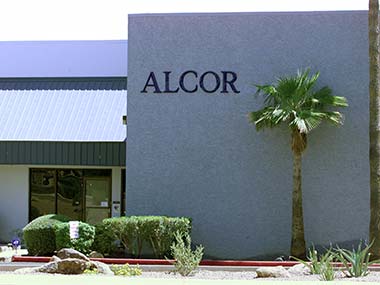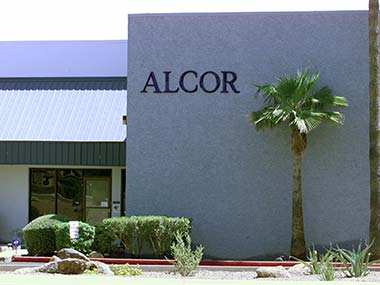When their baby, Matheryn Naovaratpong, was diagnosed with a rare form of brain cancer, soon after her second birthday, her parents knew what they had to do. In the hope that one day she’ll lead a normal life, they made arrangements for their toddler to be cryogenically preserved. Matheryn succumbed to brain cancer on 8 January, just before her third birthday. The little Thai girl then became the youngest person to be cryogenically preserved,
reports the BBC
. Cryogenics is an experimental scientific procedure aiming to save lives, according to the
website of Alcor Life Extension Foundation
, an organisation based in Arizona, USA, to whom Matheryn’s parents Sahatorn and Nareerat entrusted their daughter’s care. Busting myths about cryogenics being about freezing dead people, the foundation explains on the website that it believes that “dying is a process, not an event”. By intervening in the process, a person need never die. [caption id=“attachment_857917” align=“alignleft” width=“380”]
 Alcor Life Extension Foundation, a cryogenics company in Scottsdale, Arizona. Getty Images[/caption]
According to Alcor’s website
, once an individual’s heart stops beating, he or she is clinically dead. Science today is so advanced that it is possible to revive someone if they get the correct medical attention within the first few minutes of the heart stopping to beat. Cryonics intervenes after the heart has stopped and works to keep the rest of the organs alive so that when science advances further to a point when the window of time increases from just a few minutes to much longer, these individuals who have been preserved, can be revived. Alcor also explains on the website that unlike popular belief, they do not freeze their patients; they simply keep them vitrified with anti-freezing liquids in low temperatures in a condition they call biostasis. Once only in the domain of science fiction, as seen with the character of Khan Noonien Singh in the Star Trek series, some
scientists have been partially successful
in transplanting a vitrified kidney into a rabbit. When Matheryn passed away, a team from Alcor was ready to replace her bodily fluids with anti-freeze solutions,
reports the BBC
. Once Matheryn made it to Arizona, staff removed her brain and preserved it at - 196C. For her family, this is where Matheryn’s personality now lives on. They are hopeful that the technology to revive her will be developed in the next 30 years. The parents
stated to the BBC
that their decision to preserve their daughter cryogenically did not make their loss less painful and after Matheryn passed away, they “cried everyday”.
Alcor Life Extension Foundation, a cryogenics company in Scottsdale, Arizona. Getty Images[/caption]
According to Alcor’s website
, once an individual’s heart stops beating, he or she is clinically dead. Science today is so advanced that it is possible to revive someone if they get the correct medical attention within the first few minutes of the heart stopping to beat. Cryonics intervenes after the heart has stopped and works to keep the rest of the organs alive so that when science advances further to a point when the window of time increases from just a few minutes to much longer, these individuals who have been preserved, can be revived. Alcor also explains on the website that unlike popular belief, they do not freeze their patients; they simply keep them vitrified with anti-freezing liquids in low temperatures in a condition they call biostasis. Once only in the domain of science fiction, as seen with the character of Khan Noonien Singh in the Star Trek series, some
scientists have been partially successful
in transplanting a vitrified kidney into a rabbit. When Matheryn passed away, a team from Alcor was ready to replace her bodily fluids with anti-freeze solutions,
reports the BBC
. Once Matheryn made it to Arizona, staff removed her brain and preserved it at - 196C. For her family, this is where Matheryn’s personality now lives on. They are hopeful that the technology to revive her will be developed in the next 30 years. The parents
stated to the BBC
that their decision to preserve their daughter cryogenically did not make their loss less painful and after Matheryn passed away, they “cried everyday”.
Two-year-old baby girl is youngest to be preserved cryogenically
FP Staff
• October 15, 2015, 16:34:47 IST
Matheryn Naovaratpong from Thailand is the youngest person to be frozen cryogenically.
Advertisement
)
End of Article